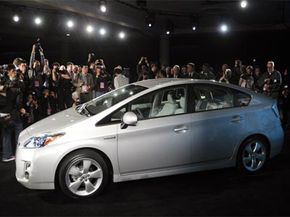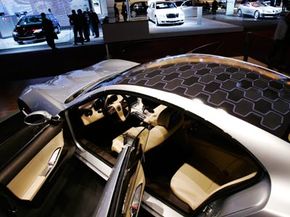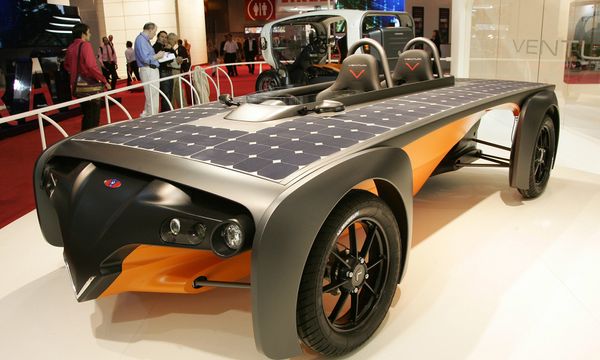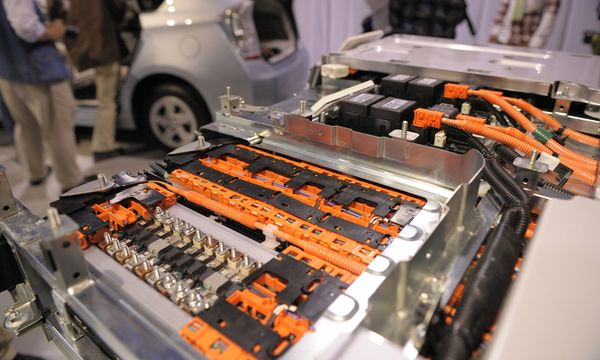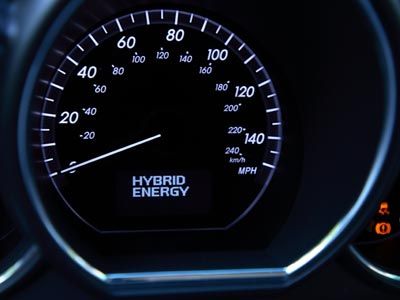One thing some drivers like about fuel-efficient vehicles like hybrid cars is that they attempt to save as much energy as possible while the car is running. When you're stopped at a stoplight, for instance, many hybrid systems will switch off the gasoline engine completely; as the car starts once again and begins to moves forward, it uses only the electric motor, which creates little or no emissions and saves fuel until the driver reaches higher speeds.
But what if hybrid cars could save energy and promote eco-friendly driving even while the car is turned off?
Advertisement
Of course, some hybrid cars do this already. Plug-in hybrids, when they're parked, can charge their batteries using common electrical outlets to increase the vehicle's range. This buys the driver a little more time before the gasoline-powered engine kicks in and improves overall fuel efficiency. But charging a plug-in hybrid still involves consuming energy from the electrical grid, which, in most cases, generates power by burning coal and other carbon-based fuels that pollute the environment and contribute to global warming.
But some automakers are thinking about getting energy from a source that's located far, far away from the Earth -- the sun. Solar panels that gather energy from the sun's light have been around for many years at this point. In fact, some people even install solar power in their homes as a way to remove themselves from the power grid. But solar panels on cars haven't always been practical, mostly because of how expensive the technology is. Some carmakers, however, including Toyota and Audi, are introducing solar panels onto their hybrid models.
And as people worry about the price of gas and the impact fossil fuels have on the environment, solar panels might seem like a novel solution to increase fuel economy and make green driving easier for commuters. But how can a hybrid car make good use of solar panels? And to what extent do they power a hybrid car? Can they help power a hybrid's electric motor, or would solar panels assist other systems throughout the vehicle? How much would adding solar panels to your hybrid car cost, and would it really be worth it? Keep reading to find out.
Advertisement
